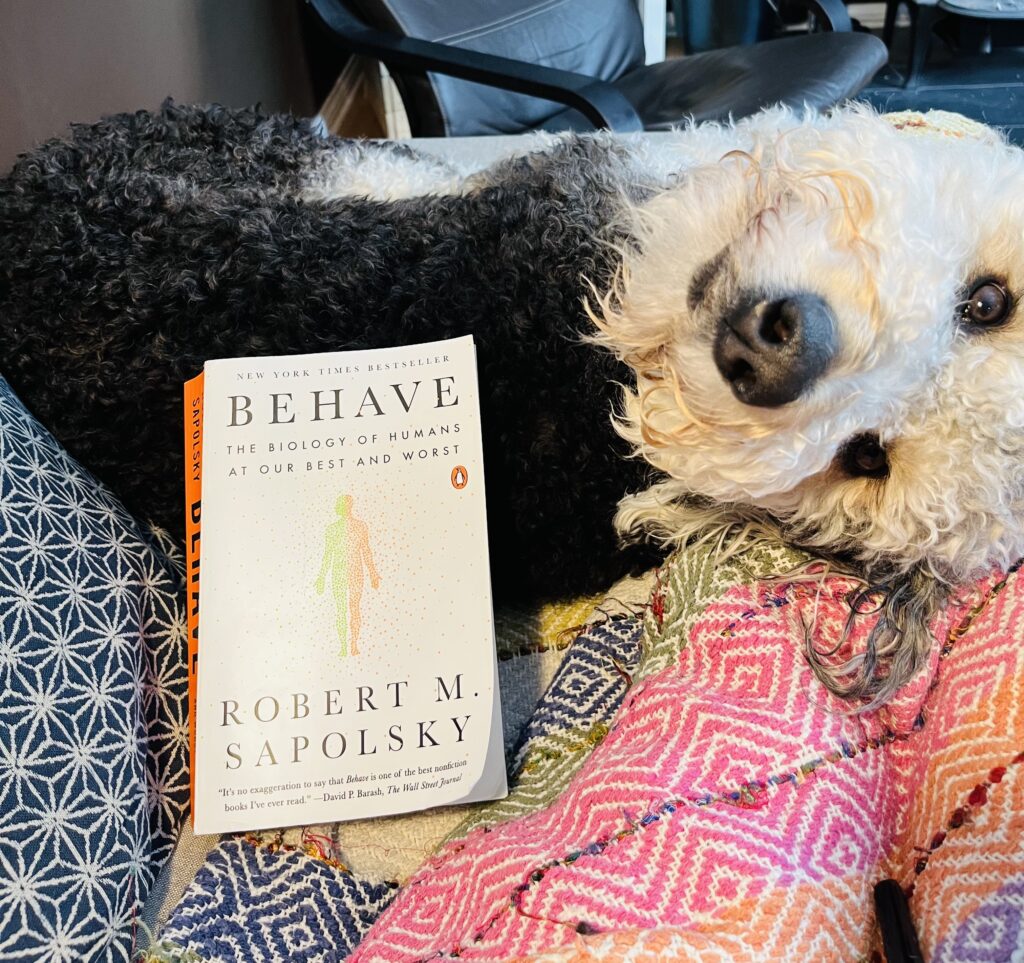
Title: Behave
Author: Robert M. Sapolsky
Date Read: February 10, 2023
Snapshot of the Book
This monumental work explores the biology of human behavior at every level, from the neurological events that occur seconds before an action to the evolutionary forces that shaped our species over millions of years. Sapolsky, a renowned neuroscientist and primatologist, guides readers through the complex interplay of hormones, genes, brain structures, and environmental factors that influence how we act.
What makes this book extraordinary is Sapolsky's ability to synthesize vast amounts of research while maintaining a conversational, often humorous tone. He tackles big questions: Why do we do what we do? What makes us violent or compassionate? How much of our behavior is predetermined versus chosen? The answers are always more nuanced than we might expect.
Snapshot of the Book in My Classroom
While this dense scientific text might seem removed from high school English, it's provided invaluable insights for understanding adolescent behavior and learning. Key applications include:
- Adolescent brain development: Understanding that the teenage prefrontal cortex is still developing helps me adjust expectations and teaching strategies
- Stress and learning: Sapolsky's research on how stress hormones affect memory formation has influenced how I structure assessments
- In-group/out-group dynamics: His exploration of tribalism helps address classroom social dynamics and promote inclusivity
I've also used Sapolsky's writing as a model for complex exposition. His ability to explain intricate scientific concepts through analogy and humor demonstrates that academic writing doesn't have to be dry. His footnotes alone are masterclasses in voice and engagement.
The book's interdisciplinary approach—connecting neuroscience, psychology, sociology, and even literature—shows students how different fields of knowledge interconnect, encouraging them to think beyond subject boundaries.
Snapshot of the Book in My Life
This book fundamentally changed how I think about free will, moral responsibility, and human nature. Sapolsky's careful dismantling of simplistic nature-versus-nurture arguments has made me more compassionate and less judgmental, both of others and myself.
His discussion of how context shapes behavior—how the same person can be cruel in one situation and kind in another—has made me more thoughtful about the environments I create. In both my classroom and personal life, I now pay more attention to the subtle factors that bring out the best or worst in people.
Perhaps most importantly, understanding the biological basis of behavior hasn't made life feel predetermined or meaningless. Instead, it's deepened my awe at the complexity of human experience and reinforced the importance of creating conditions that allow people to thrive.

